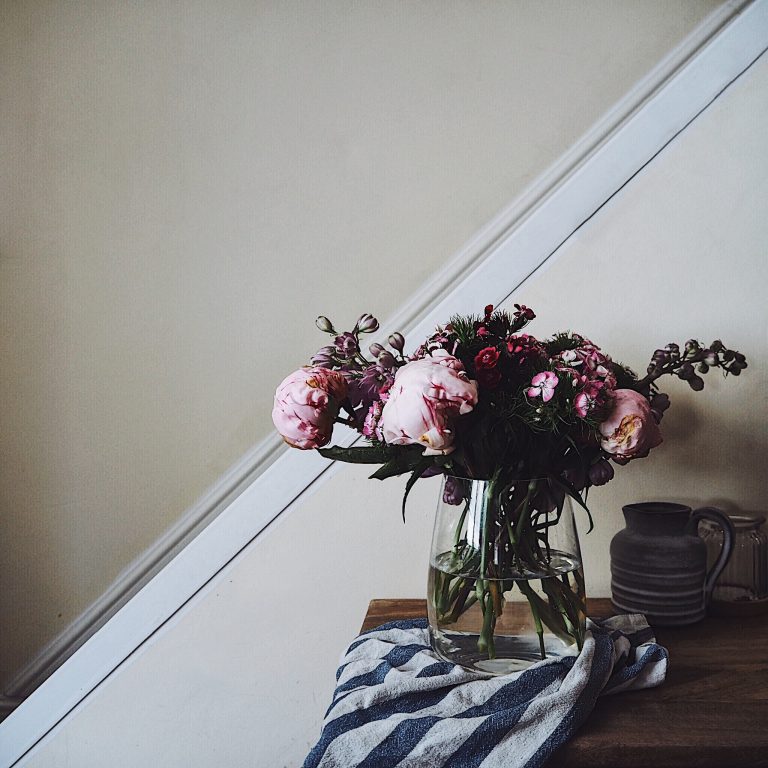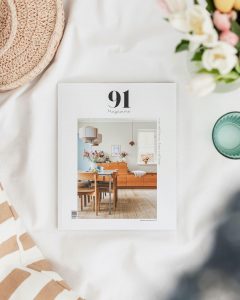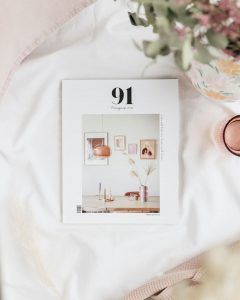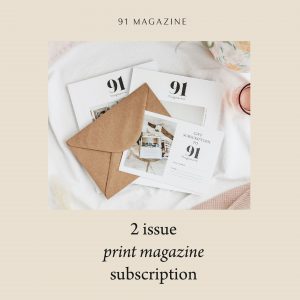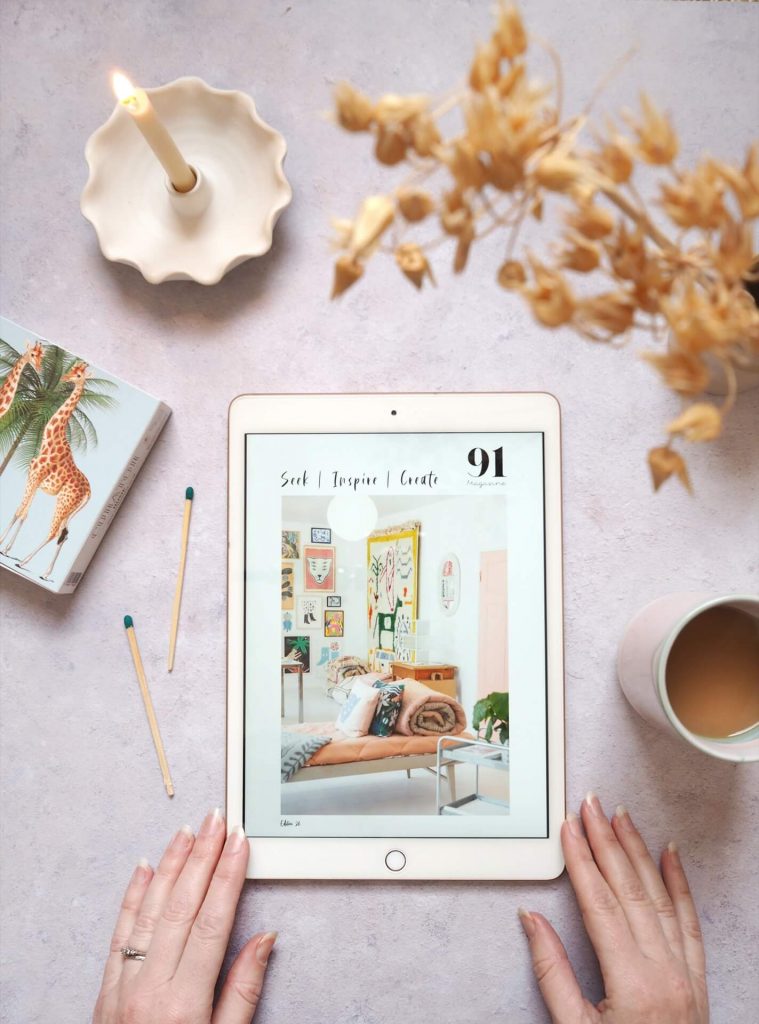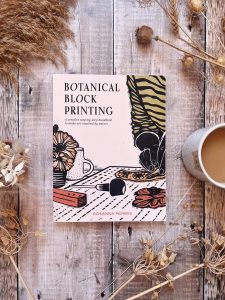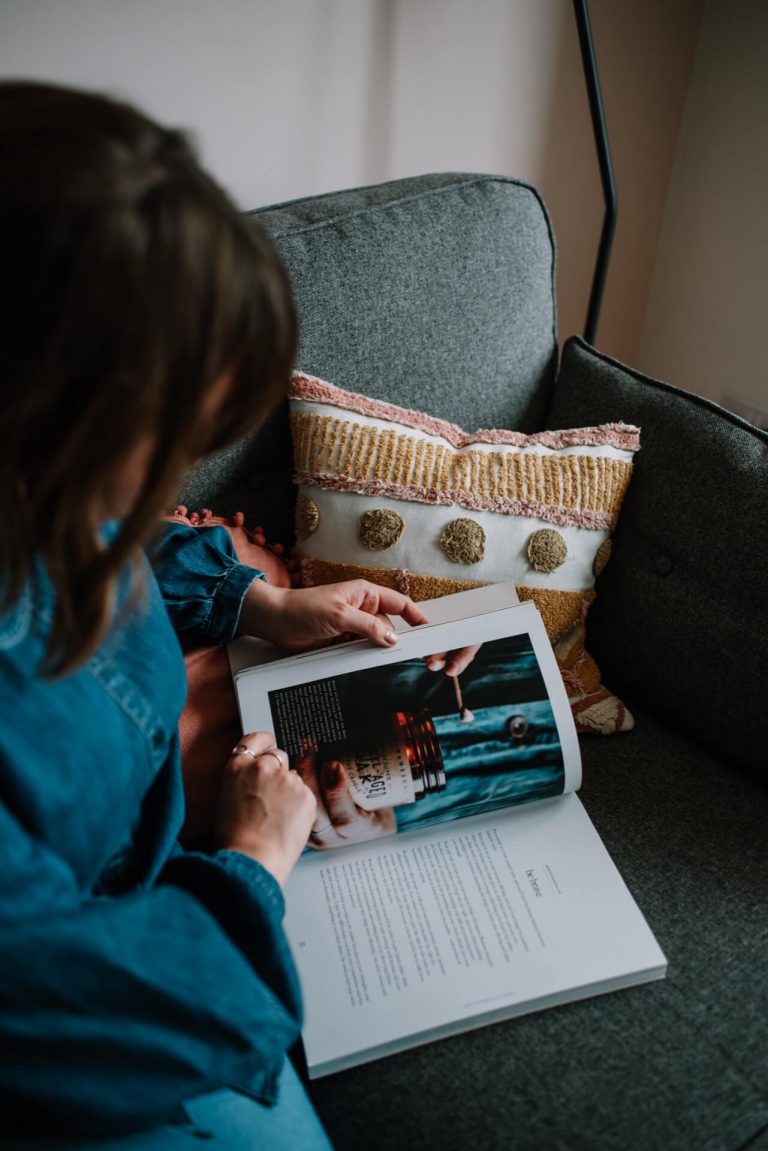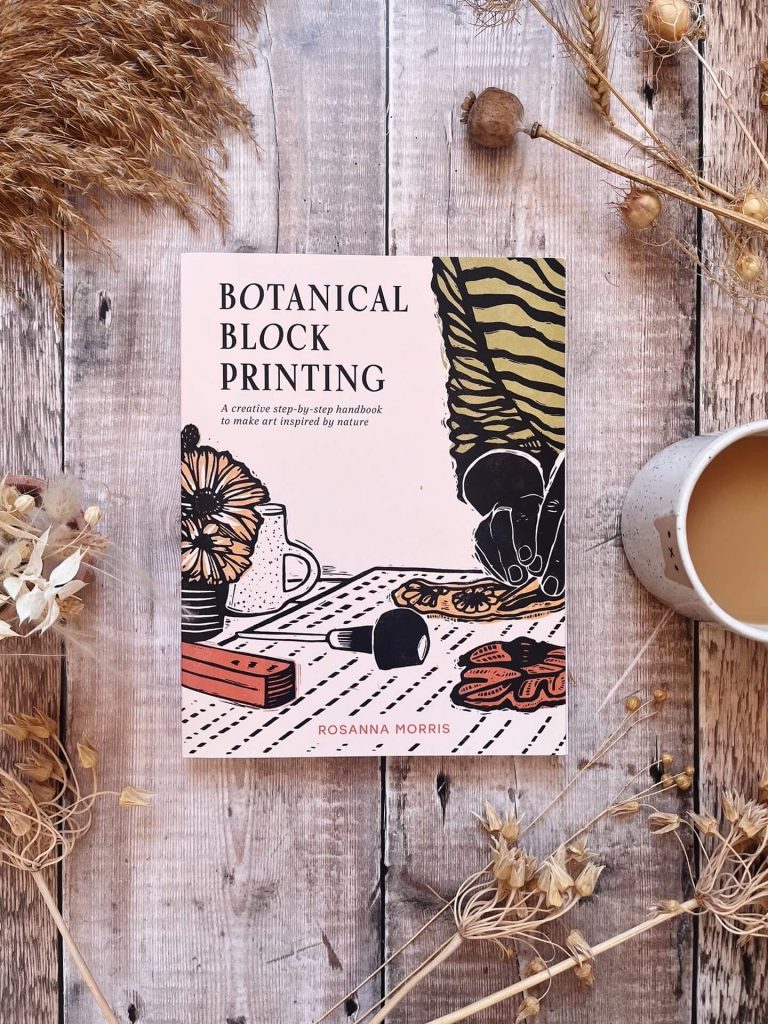Starting your own business has never been easier or more commonplace – but is it something we all need to be doing? Slow marketing coach Kayte Ferris talks us through the questions you need to ask yourself when considering transforming a hobby into a business and if you do, how to get started.

“Should I turn my hobby into a business?” – isn’t that the perennial question of creative people everywhere? Whether you write a blog and everyone around you seems to be monetising, or your friends insist that “you should totally sell these!” about your craft projects, it can feel like you’re somehow ‘falling behind’ by not selling your work. It feels at the moment that the air is thick with talk of side-hustles and productivity that make the whole idea that maybe this is something you should be doing all the more pervasive. But the question remains: should you turn your hobby into a business?
For a long time online, monetising your passions was seen as the ultimate self-actualisation. As the old adage goes, do what you love and you’ll never work a day in your life, and a whole generation took those words to heart and strove to forge careers and businesses that gave them the best of both worlds. However, recently, there has been a small backlash within generation monetise, with online magazine Man Repeller claiming “We don’t have to monetize or optimize or organize our joy. Hobbies don’t have to be imbued with a purpose beyond our own enjoyment of them. They, alone, can be enough.”
Ultimately, though, this is a decision that is yours to make, and yours alone. It’s very much the kind of decision you want to outsource – that’s probably why you’re reading this article! It feels too big, too life changing, to be made by just you; you surely need to crowdsource opinions from those who ‘know better’ and follow the advice of those who seem more sure about what’s right than you. It’s a comforting notion, but not an empowered one. Giving the power to decide the course of the next phase of your life to strangers on the internet is, when you put it like that, a pretty crazy idea.

But still, that doesn’t change the fact that you don’t really know how you feel and what you want, right? Maybe you sought out other opinions as a way to clarify your own thoughts, but all that’s happened is that you’re now more confused, with the added weight of knowing what other people in your life expect you to do. In order to make this decision, you need to get in touch with your subconscious thoughts and feelings, feeling your way intuitively around the dark recesses of your brain to dig out some dusty thoughts from the back. And here are some questions to help you do that.
1. How do you want to feel in your life?
Find a moment of stillness where you can feel comfortable, close your ideas and imagine yourself transported to an ideal world a few months from now. What is it like, here in your ideal future? Where are you, what are the colours and the light like, what are the smells and the sounds? (Introducing the senses to this vision helps to make it real for the brain and grounds you in this place.) How are you feeling, name those emotions.
With the vision in your mind, think about how your hobby features in that version of your life? Did it feel like it was possible because your hobby was your business, or do you think that monetising your hobby will jeopardise that vision?
The future vision is something I use to make decisions all the time in my business. In my vision, I’m in a garden; it’s evening because the light is low and golden, and all around me is green. I’m touching roses with my fingertips and the heady smell of flowers is all around like a cocoon. I know that inside my work is patiently waiting for me, but that I have nowhere urgently to be and no one to answer to. Any time I’m faced with a choice or a decision, I choose the one that will bring me closer to that feeling in my vision.
2. What would your dream week look like?
This is a popular exercise from my Purpose Kit to help you start to think about what is most important to you.
An email drops into your inbox. A loved one nominated you for a ‘week away from routine’ and you’ve now got a whole week to do what you want with. You can choose where you take this week – stay at home, go to your favourite place, fly to the other side of the world. The only expectation is that you do whatever you want to in that week – you must do nothing out of obligation.
Write down a few lines about where you’re taking your dream week – where you’re staying, what the weather is like, how you’re feeling. Ground yourself in this place, really feel it. Don’t skip this part! It makes the difference in taking your mind truly away.
Now, plan out what you’re going to do in this week. What are you going to do that’s just for you, that fills you up? Write out your itinerary.
What does this tell you in terms of what’s important for you? Would monetising your hobby be more or less like this dream week?
3. When you think about monetising your hobby, what sensations do you feel in your body?
This is a very traditional way of accessing your intuition and is actually really helpful when you have a specific question like this. Again get yourself somewhere comfortable (I quite like doing thinking like this in the bath!), lie back and clear your mind as much as possible of all the thoughts you’ve had about this, and all the opinions of others.
If you’re not used to connecting with your intuition, a practice run might help. Get to know how your body feels when you speak the truth, and how it feels when you tell a lie to see how it reacts to what is right and what is wrong. This is a trick I learned from Susannah Conway: say out loud “my name is [your actual name]” and take note of any feelings in your body; then say out loud “my name is [a name that is not your name]”. How do the feelings change?
Form your version of that question in your mind, ‘should I turn my hobby into a business?’, speak it out loud if you don’t feel too awkward, and pay attention to the sensations in your body. Do you feel any pangs, sparks, heaviness, tightness? Where in the body are those feelings? If you did the practice run, do they feel more like the truth or the lie? Can you put a name to any of the feelings – excitement or dread, potential or worry?
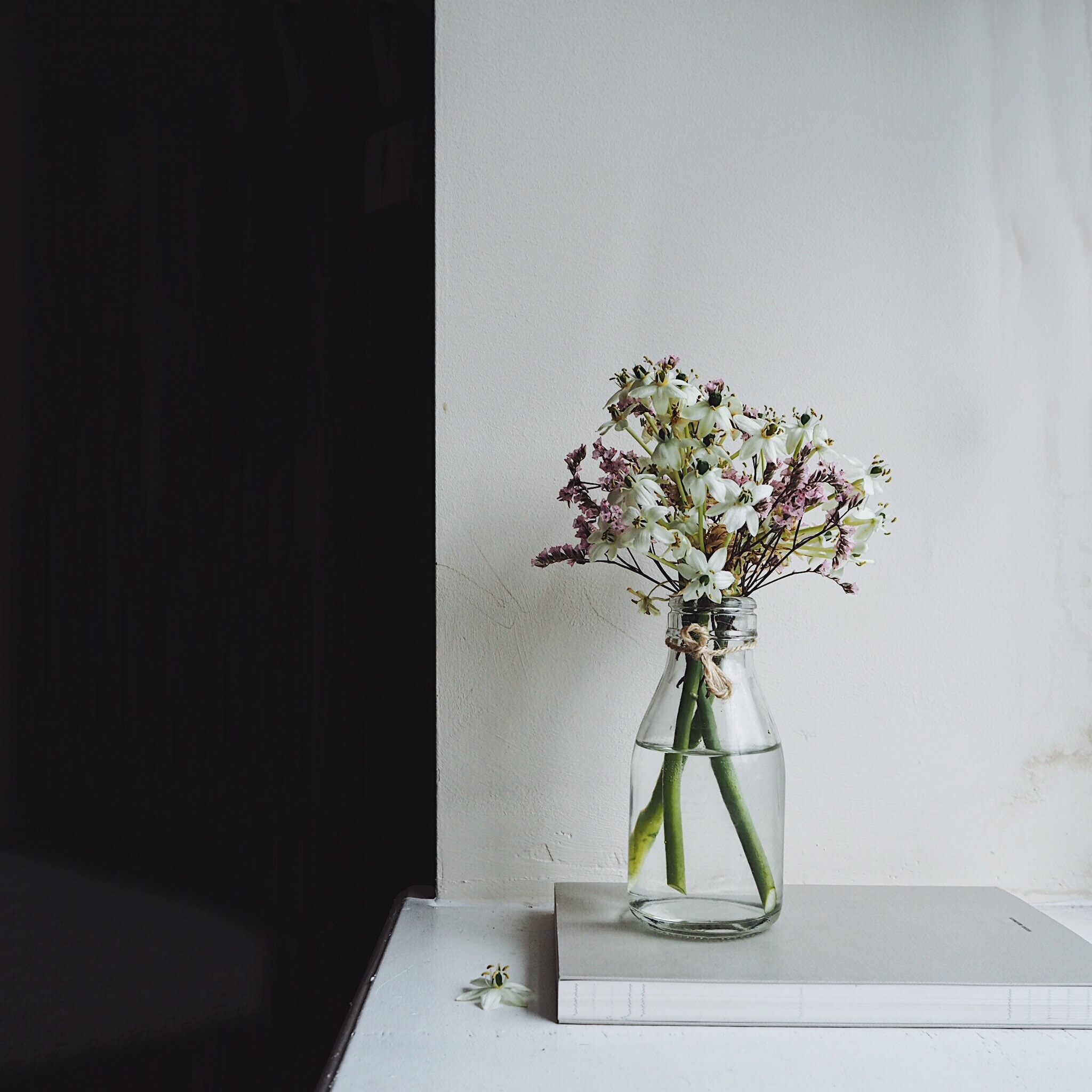
Hopefully, by working through these questions, you have more of a steer of what feels right and true to you. Maybe the answer surprised you, or perhaps wasn’t quite the one you wanted, but at least it’s come from you – you can know that you truly wanted it, or that you didn’t. So what next? If your intuition told you to keep your hobby for yourself, you can relieve the pressure – if you feel you need to, formulate a stock answer to quash those “you should be selling these” conversations, and go about enjoying your hobby!
If, however, your intuition said “let’s go for it”, you’ve likely got a whole other set of questions now! Where do I start? Do I need a business plan? What’s the next step? Here is my key advice for those on the cusp of their business:
- Start before you’re ready – get a website up, start sharing your work on social media, book a market, do whatever it takes to start being visible in your business. Our compulsion is to work away in the background until everything is ready and perfect but the problem with that is two-fold: if you’re waiting for it to be perfect you’ll never take it public, and if you’re keeping it a secret then your potential customers aren’t getting to know you and trust you
- Experiment – when you’re starting out is the perfect time to test and try things out, as you haven’t got much to lose if it doesn’t go so well. Play around and see what works, have fun with creating different content and try on some different methods of marketing. Don’t feel you have to start out with a rigid plan; your plan will be better for having things you’ve already tested in it
- Be curatorial with the advice you take – there is so much business advice on the internet, and a lot of it won’t apply to you. People may be writing for business owners with a different business to yours, or at a different stage. Stay connected to your intuition and don’t assume that others know best – follow the advice that feels right
Ultimately, whether you decide to start turning your hobby into a business now, later or never, my biggest hope for you is that you continue to stay in close contact with yourself. As you continue to tread this path you will have well-meaning (and sometimes not so well-meaning) voices telling you what you definitely must do – it is never ‘wrong’ to do what feels like the best thing for you, even if that’s not what others want. It’s all in your power, and you can exercise it.
You can find more from Kayte at simpleandseason.com. Basecamp, her course to help overwhelmed beginners get going with their businesses, is available now.

